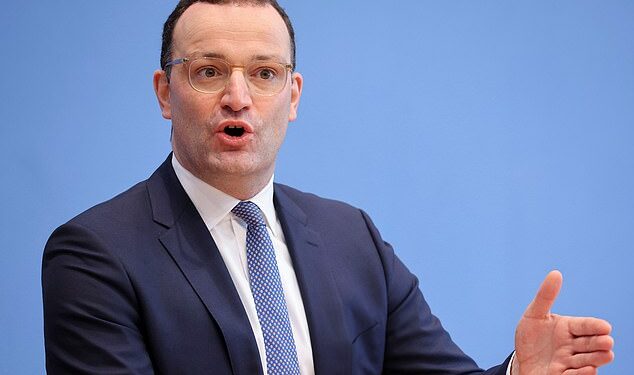Germany could leave the European Convention on Human Rights if it is unable to overhaul Europe’s asylum system, one of the country’s leading conservative politicians has said.
Jens Spahn, who was a minister under Angela Merkel and represents the Christian Democratic Union (CDU) in the Bundestag, said the move is only one component of a far-reaching plan to lower migration levels.
Politicians in Britain’s Conservative Party have made similar suggestions, with leader Kemi Badenoch recently signalling that she would consider pulling the UK out of the Europe-wide treaty.
Berlin and London have signed a new agreement aimed at tackling immigration-related crime, with Germany tightening its laws to prosecute people smugglers aiming to take people to Britain as part of it.
The CDU, which holds a strong lead in the polls in Germany ahead of a snap election in February, has put a strengthening of migration policy at the top of its agenda.
The party’s leader Friedrich Merz, who will likely become chancellor, has said he would declare a national emergency in order to turn back a far greater number of asylum seekers at Germany’s borders.
Allies of Merz, including Spahn, believe that the European courts have defined the right to asylum too broadly and more generally than set out in the original Convention and other refugee agreements set out after World War Two.
‘We need to go back to the fundamental principle of providing protection,’ Spahn told The Times. ‘Yes, we want to provide protection but we also want to have control and to be able to decide when, what and why.’

Jens Spahn, who represents the Christian Democratic Union (CDU) in the Bundestag, said the move is only one component of a far-reaching plan to lower migration levels

The European Court of Human Rights (ECHR), in Strasbourg, eastern France
He holds the belief that other European countries are willing to work with Germany to tackle the migration crisis and change the law to reinforce national sovereignty.
‘If you come to the conclusion — and this is the debate that is also happening in the UK at the moment — that these things can’t be changed because there’s no majority for it, then of course you have to think again about your membership [of the ECHR],’ Spahn told The Times.
‘It is not ordained by God that we have to be a member in all these things. We are happy to be a member, we’re convinced multilateralists, but it has to deliver some benefit, too.’
All 46 members of the Council of Europe, including the UK, are signatories to the ECHR. All 27 EU countries are also bound by the Convention.
Changing the implementation of the law would require EU rules to be rewritten as well as those surrounding the ECHR itself.
The former health minister, who is touted for another ministerial job should Merz become Chancellor, added that he is willing to risk disagreements with other European leaders to serve the best interests of his country and protect the German people.
Spahn said his party had learned from the ‘mistakes’ of the Merkel era, including on migration, following her 2015 decision to keep Germany’s borders open.
Between 2015 and 2017, Germany received around half of all asylum claims submitted across the EU, with 1.1 million applications in 2015 alone.
The country has recorded 236,400 asylum applications and 71,000 illegal border crossings so far this year.

Some 20,110 people have crossed the English Channel in small boats in the five months since Keir Starmer entered Downing Street

Kemi Badenoch recently signalled that she would consider pulling the UK out of the Europe-wide treaty
These figures are lower than in 2023 but above the number that has prevailed since the 2015 migrant crisis.
The UK saw 99,790 people claim asylum in the year up to September which was 1% more than in the year ending September 2023.
Figures out late last month showed that net migration hit a record 906,000 in the year to June 2023.
Meanwhile some 20,110 people have crossed the English Channel in small boats in the five months since Keir Starmer entered Downing Street.





